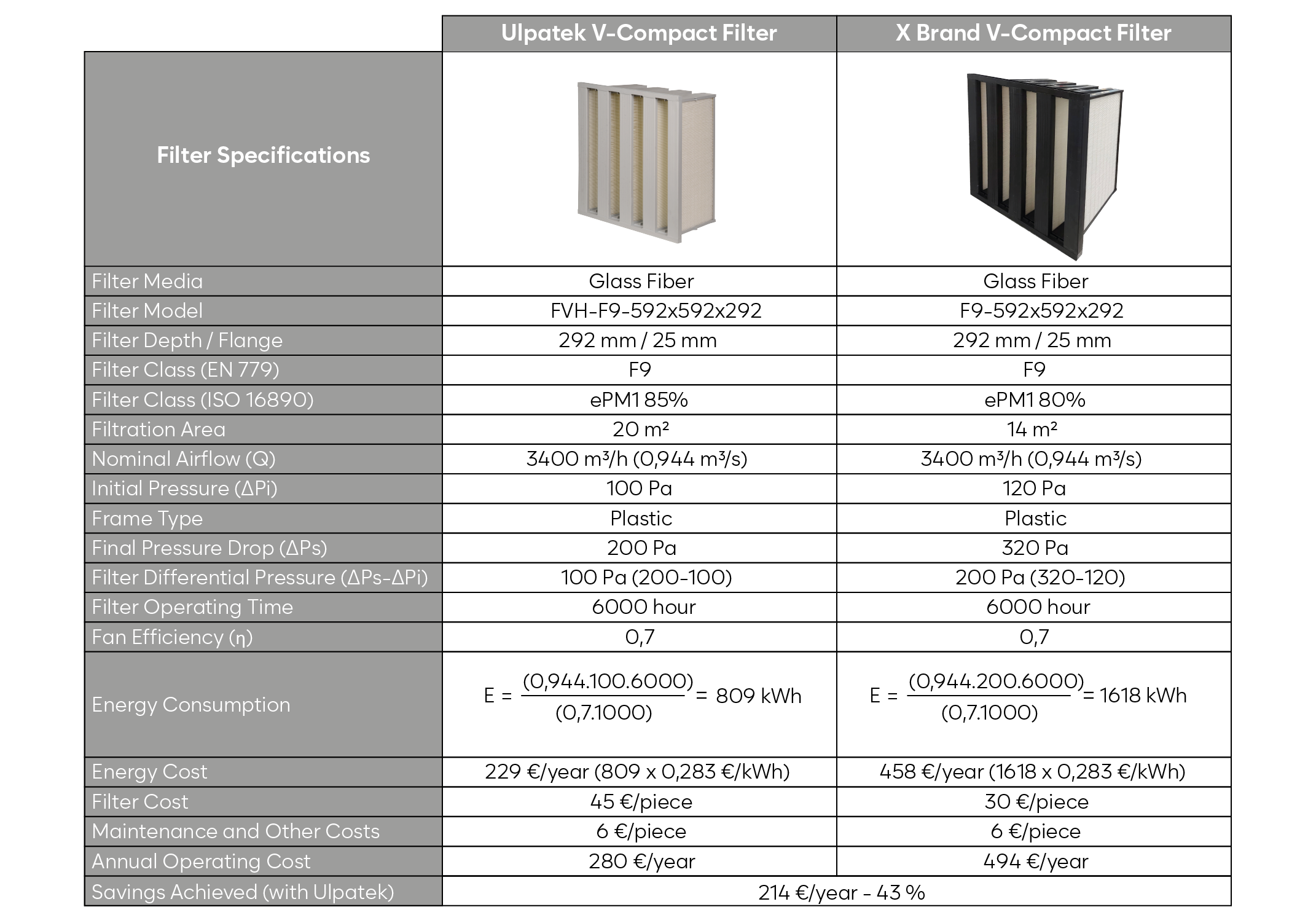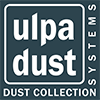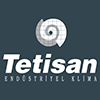It is essential to understand the total cost of ownership (TCO) of air filters before making any purchasing decisions. There are various factors affecting TCO, such as, energy cost, filter cost, labor, and disposal, to help you make an informed decision.
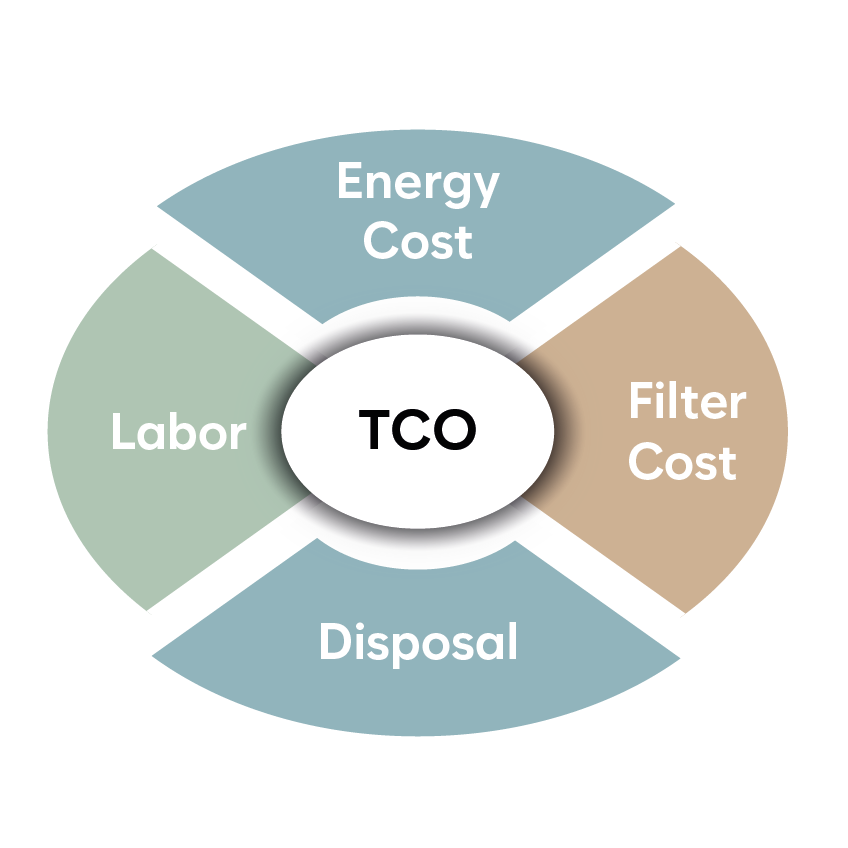
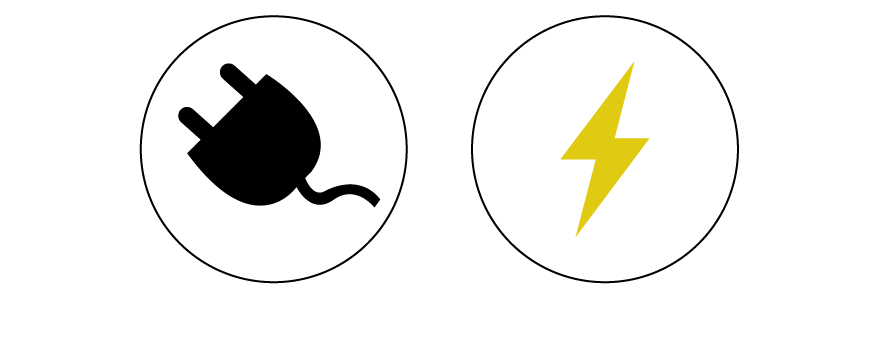
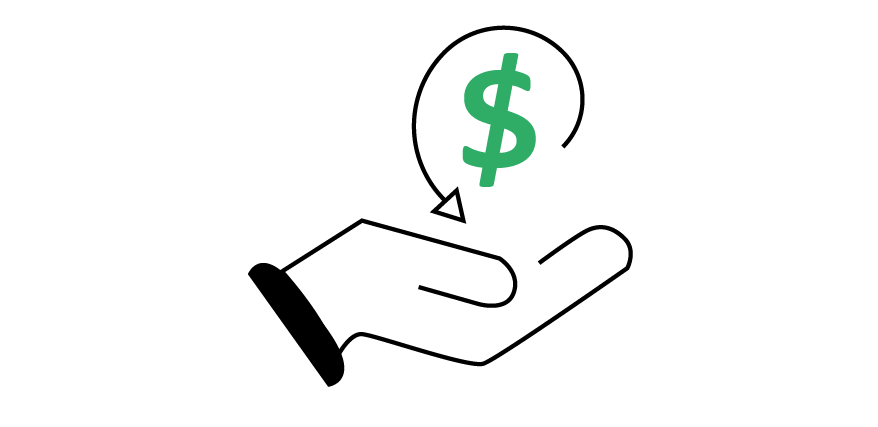
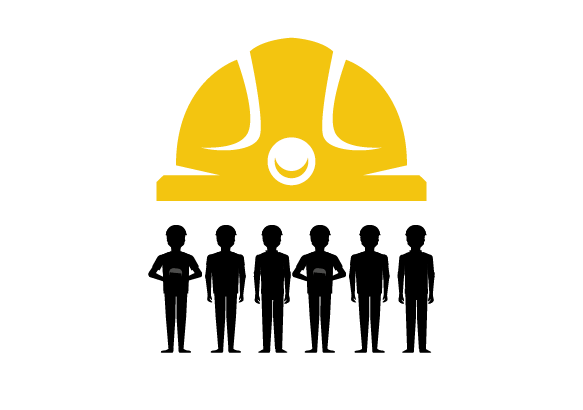
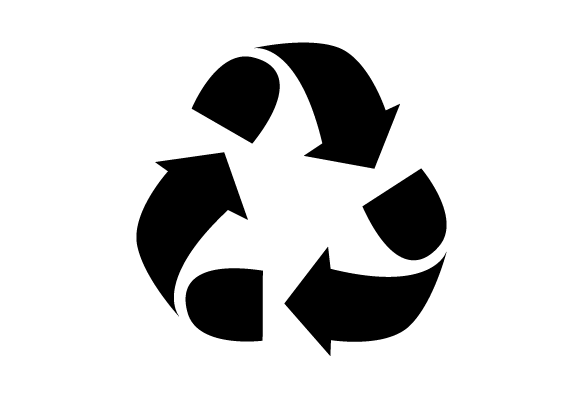
To calculate the Total Cost of Ownership, it is necessary to first calculate the energy consumption. The energy consumption formula is as follows.
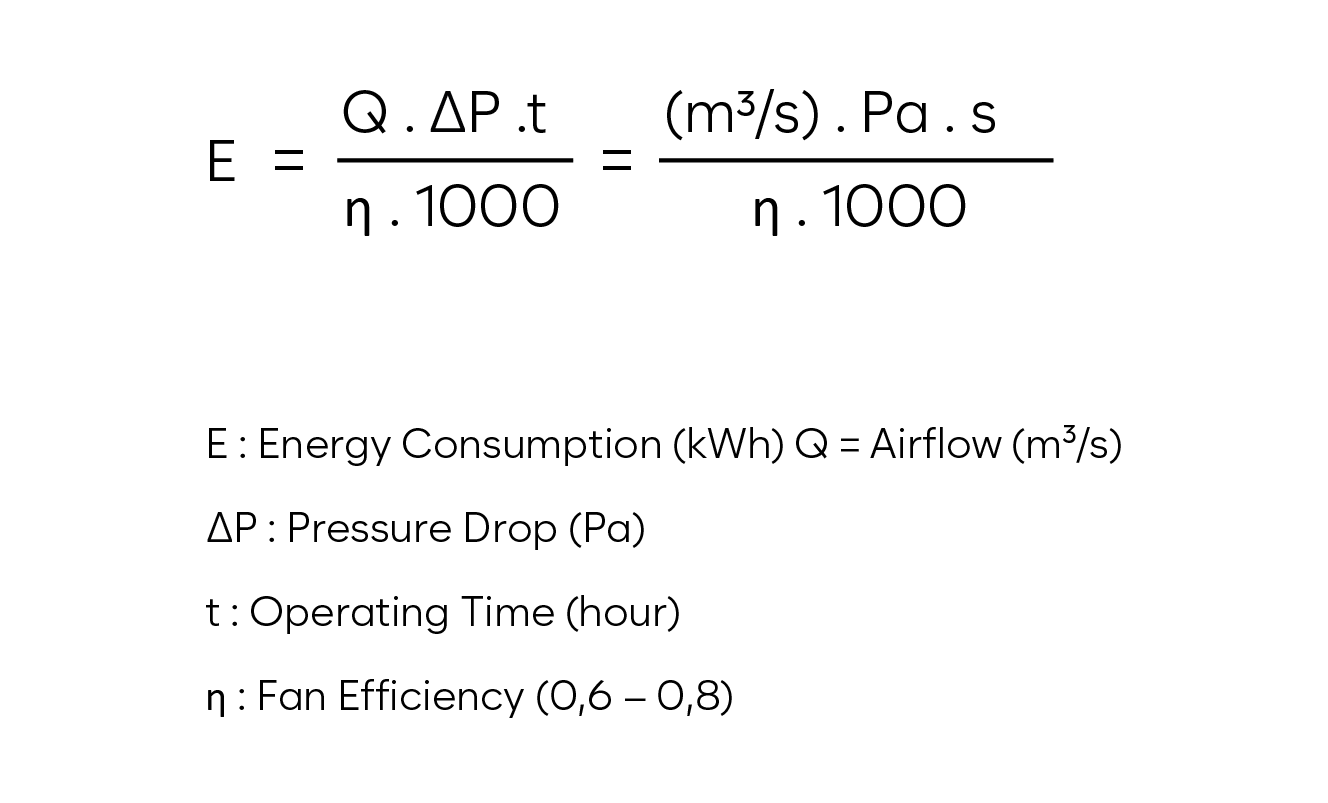
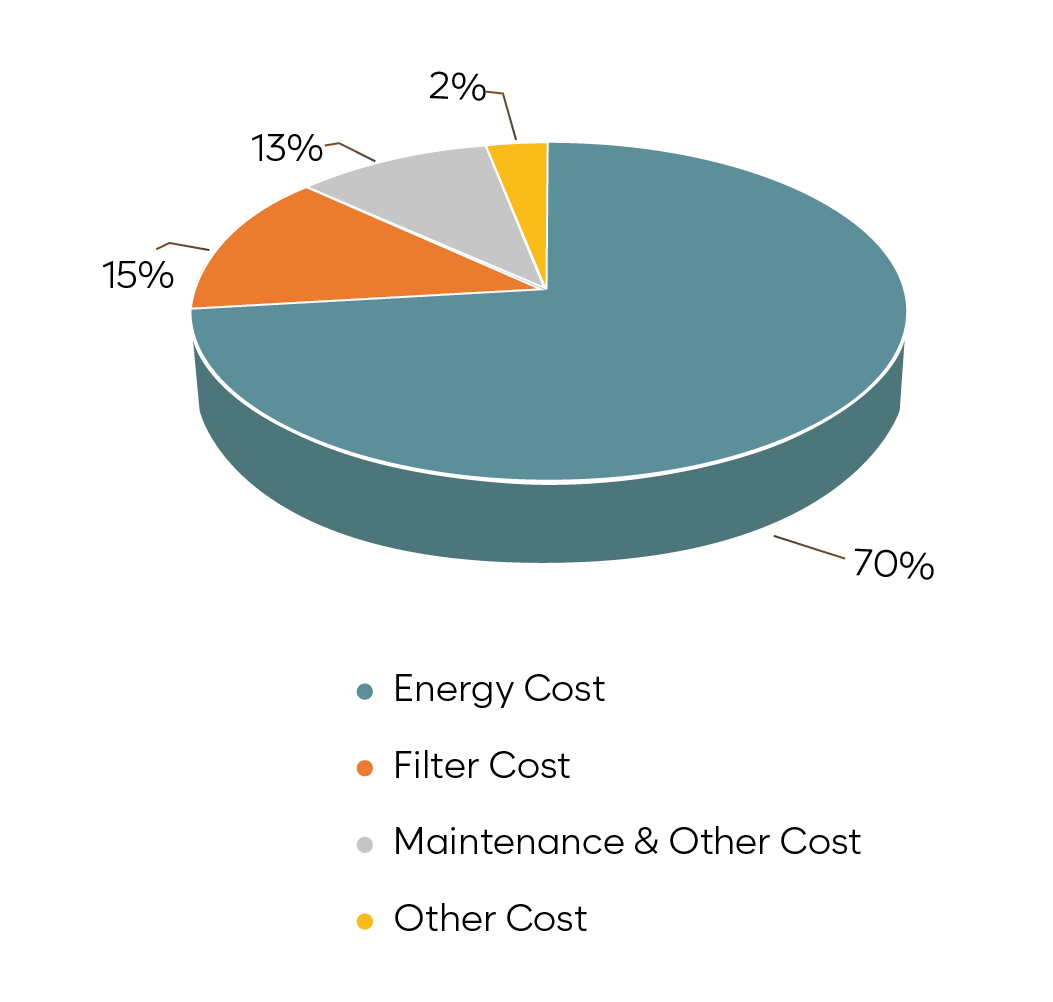
Under Other Costs, there are expenses related to storage, transportation, losses due to damage, and waste disposal costs.
Conclusion
Understanding the total cost of ownership of air filters is crucial for making informed purchasing decisions. By considering factors such as pressure drop, energy cost, filter cost, labor and disposal, cleaning, you can choose the right filter for your needs while minimizing long-term expenses. Remember that investing in high-quality, energy-efficient filters can lead to significant savings and better indoor air quality in the long run.

